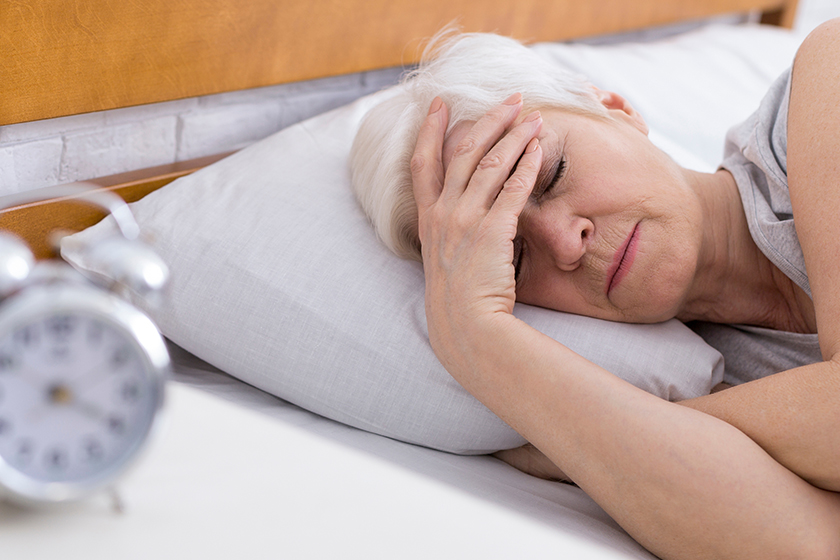Experiencing disrupted sleep patterns is a natural phenomenon as we age. Almost half of the American population over 65 years of age has reported disruptions to their sleep. Although it is a well-known fact that we do not need as much sleep in our golden years, having interrupted sleep will result in poor quality of sleep which will take a toll on our health. Regardless of how our sleep patterns evolve, we need ample, quality rest to maintain our physical and mental wellbeing. Read about the most common sleep problems in aging adults and how you can deal with them.
Insomnia
Insomnia is defined as having difficulty falling or staying asleep. Because it affects so many people, insomnia is known as the granddaddy of all sleep disorders. In one study, about 24 percent of seniors said that they had sleeplessness symptoms. Anxiety, sadness, exhaustion, lower quality of life, cognitive impairment, and a range of other negative long-term health effects have all been linked to insomnia. The most important way to deal with insomnia is to analyze the situation by keeping track of your sleep and recording your sleep patterns in a sleep journal. You should also seek professional medical advice instead of relying on prescription or non-prescription drugs to help you sleep – these drugs can lead to cognitive decline.
Restless Legs Syndrome
If you have restless legs syndrome (RLS), you will experience restlessness, uncomfortable sensations like itching, and a strong urge to move your legs. When a person is trying to fall asleep, the symptoms may become more acute. You might be able to relieve your discomfort by walking or moving around. The exact scientific causes of this disease are unknown. However, it might be linked to dopamine and iron levels in the brain and has nothing to do with neurodegeneration. According to studies, five to 15 percent of the general population has RLS. Some risk factors include poor health, advanced age and low iron levels. If you are a female, you’re also more likely to get RLS. RSL also has a proclivity for running in families. Depression, anxiety, and sleep-onset insomnia have all been linked to RLS. Do you know that taking certain medications can lead to a higher risk of RLS too? If you suspect that you or a loved one has RLS, you should consult a physician. Although you don’t need polysomnography in most cases, you should still get examined for low iron levels.
Underlying Medical Conditions
As we age, it is common to experience primary sleep disorders. However, many others suffer from secondary sleep problems too. Secondary sleep disorders are caused by underlying medical conditions. For instance, an overactive bladder might cause you difficulties in falling asleep. If you are experiencing trouble sleeping, try to find out if your sleep problems are related to any medical conditions.
Make Sure You Get Enough Sleep
Everyone is unique. It’s possible that you no longer require as much sleep as you did when you were younger, yet still feel rested and energized during the day. On the other hand, if the lack of sleep is affecting you during the day, you should consult a doctor. There are also things you can do to improve your sleep quality such as listening to soothing music before bedtime or going to bed at a regular time. By making minor changes to your daily routine, you might be able to deal with some of the more common sleep problems.







